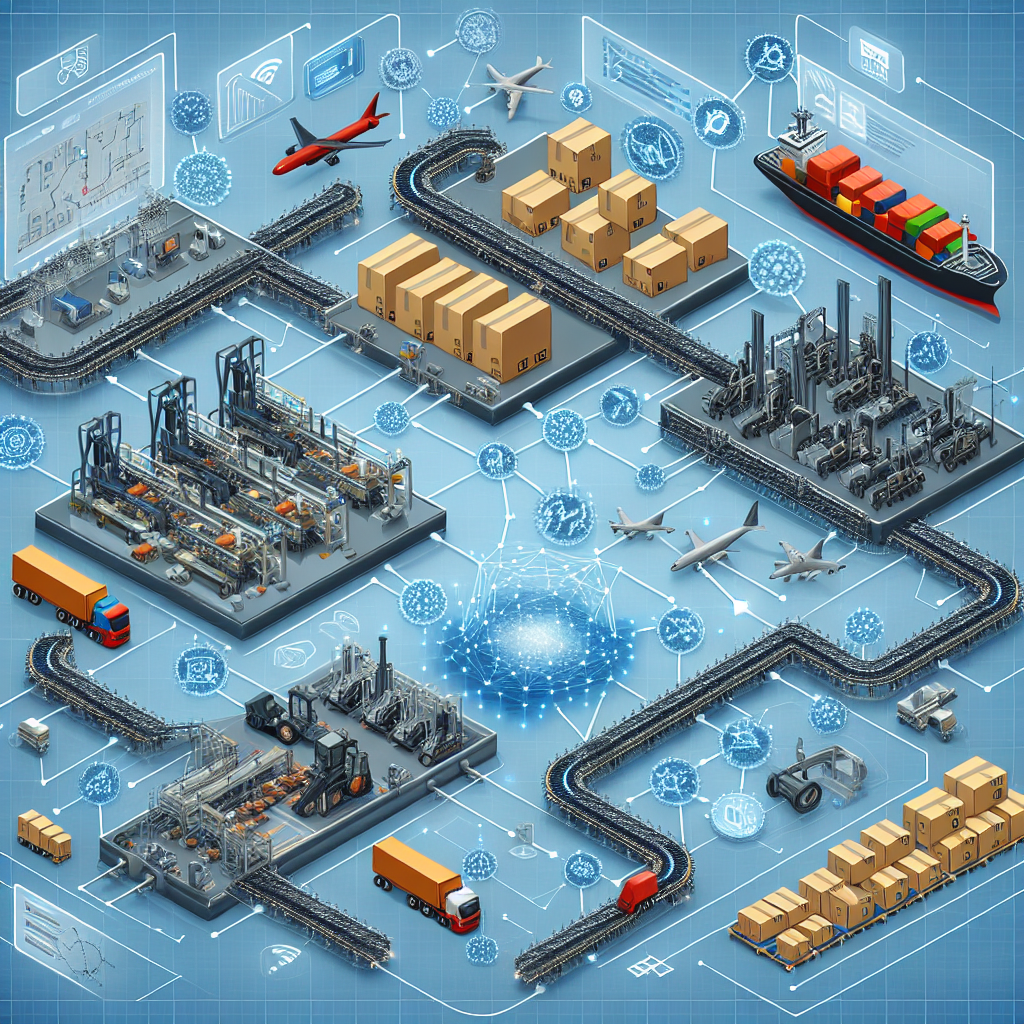In today’s fast-paced business environment, supply chain optimization is crucial for companies to stay competitive and meet the demands of their customers. Leveraging AI solutions can help companies streamline their supply chain processes, reduce costs, and improve efficiency. In this article, we will discuss the benefits of using AI for supply chain optimization and explore some common FAQs about this technology.
Benefits of Leveraging AI Solutions for Supply Chain Optimization
1. Demand Forecasting: AI solutions can analyze historical data, market trends, and other factors to accurately predict demand for products. This helps companies optimize their inventory levels, reduce stockouts, and minimize excess inventory.
2. Inventory Management: AI can optimize inventory levels by analyzing demand patterns, lead times, and other factors. This helps companies reduce carrying costs, minimize stockouts, and improve customer satisfaction.
3. Route Optimization: AI solutions can optimize delivery routes by considering factors such as traffic conditions, weather, and customer preferences. This helps companies reduce transportation costs, improve on-time delivery rates, and enhance overall logistics efficiency.
4. Supplier Management: AI can help companies identify the most cost-effective suppliers, negotiate better terms, and manage supplier relationships more effectively. This helps companies reduce procurement costs, improve quality, and mitigate supply chain risks.
5. Warehouse Automation: AI-powered robots and drones can automate repetitive tasks in warehouses, such as picking, packing, and inventory management. This helps companies improve warehouse efficiency, reduce labor costs, and increase order accuracy.
6. Risk Management: AI solutions can analyze data from various sources to identify potential risks in the supply chain, such as supplier disruptions, market fluctuations, and natural disasters. This helps companies proactively manage risks, mitigate disruptions, and ensure business continuity.
7. Real-time Visibility: AI-powered tools can provide real-time visibility into the supply chain, enabling companies to track shipments, monitor inventory levels, and identify bottlenecks. This helps companies make informed decisions, optimize processes, and improve overall supply chain performance.
Common FAQs about Leveraging AI Solutions for Supply Chain Optimization
Q: What are the key challenges in implementing AI solutions for supply chain optimization?
A: One of the key challenges in implementing AI solutions for supply chain optimization is data quality. AI algorithms require large amounts of high-quality data to generate accurate predictions and recommendations. Companies need to ensure that their data is clean, accurate, and up-to-date to derive maximum value from AI technology.
Q: How can companies overcome data silos and integrate data from different systems for AI-powered supply chain optimization?
A: Companies can overcome data silos by implementing data integration tools that can connect disparate systems, unify data from different sources, and provide a single source of truth for AI algorithms. Additionally, companies can use data governance practices to ensure data consistency, quality, and security across the organization.
Q: What are the potential risks and challenges of AI-powered supply chain optimization?
A: One potential risk of AI-powered supply chain optimization is overreliance on technology. Companies need to strike a balance between human expertise and AI algorithms to make informed decisions and address complex supply chain challenges. Additionally, companies need to consider ethical and regulatory implications of AI technology, such as data privacy, algorithm bias, and transparency.
Q: How can companies measure the ROI of AI solutions for supply chain optimization?
A: Companies can measure the ROI of AI solutions for supply chain optimization by tracking key performance indicators (KPIs) such as cost savings, inventory turnover, on-time delivery rates, and customer satisfaction. Companies can also conduct pilot projects, A/B testing, and post-implementation reviews to evaluate the impact of AI technology on supply chain performance.
Q: What are the future trends in AI-powered supply chain optimization?
A: Future trends in AI-powered supply chain optimization include the adoption of advanced technologies such as machine learning, natural language processing, and computer vision. Companies are also exploring the use of blockchain technology, Internet of Things (IoT) devices, and digital twins to create more connected, intelligent, and responsive supply chains.
In conclusion, leveraging AI solutions for supply chain optimization can help companies improve efficiency, reduce costs, and enhance customer satisfaction. By harnessing the power of AI technology, companies can optimize their supply chain processes, manage risks, and stay competitive in today’s dynamic business landscape. As companies continue to invest in AI-powered tools and technologies, it is essential to address common challenges, measure ROI, and stay informed about emerging trends to unlock the full potential of AI for supply chain optimization.

